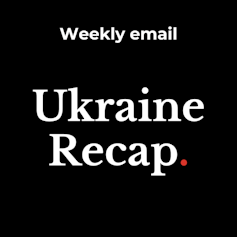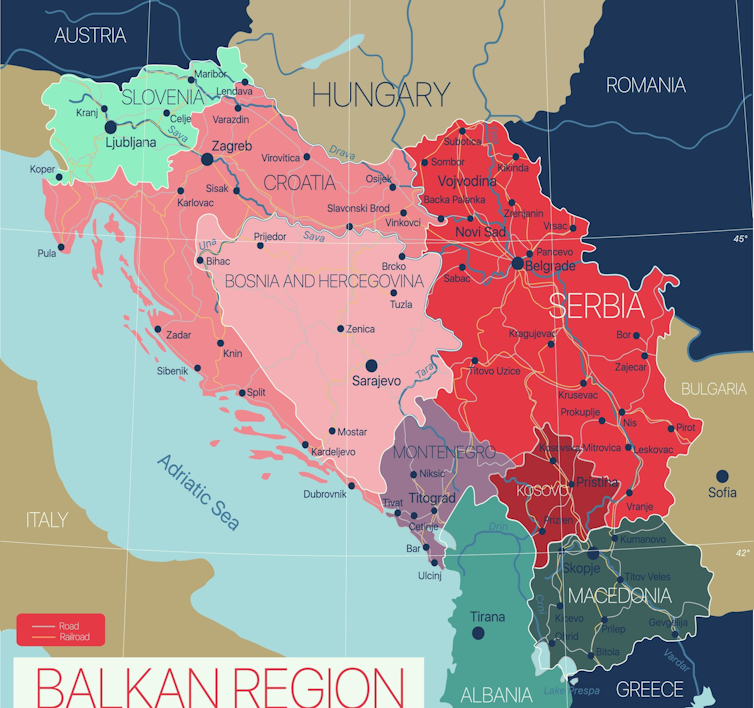There was a perceptible sense of relief on Monday when the Razoni, a Sierra Leone-flagged vessel, left the port of Odesa with 26,000 tons of grain bound for Tripoli in Lebanon. This was the first ship out of the port city since Vladimir Putin sent his military machine into Ukraine and Russian ships began its blockade.
The deal, negotiated by UN secretary general António Guterres and Turkish president Recep Tayyip Erdoğan, was struck on July 23 and was followed the very next day with Russian airstrikes on Odesa. They struck what a Russian foreign ministry spokesperson said were legitimate military targets including a stockpile of US-supplied missiles.
It’s now reported that there are a further 17 ships in dock in Odesa loaded with grain and awaiting permission to leave. It’s not yet known what is causing the delay, but obviously outgoing vessels need to be checked to ensure they carry only grain, fertiliser or food and not any other commodities. Incoming ships need to be checked for weapons.
But, assuming that the deal holds and that a regular supply of grain is able to leave Ukraine – where there is 22 million tonnes of wheat, maize, sunflower seed and other grains in silos waiting for export – the benefits will be immediate, writes Wandile Sihlobo, a senior fellow in agricultural economics at Stellenbosch University in South Africa.
He believes there will be a softening in prices as more grain supplies become available to the world market. But he says grain prices are unlikely to return to pre-war levels, thanks to a number of other factors including drought in South America, east Africa and Indonesia and rising demand for grains in China.
Read more: Russia/Ukraine grain export deal promises major benefits for poor countries. If it holds
But why didn’t the west see this coming years ago, asks Anna-Sophie Maass, who specialises in international relations and diplomacy at Lancaster University. She believes Russia’s intentions towards Ukraine have been pretty clear since it annexed Crimea and 2014 and started insurgences in the Donbas region (which have now escalated – as we know – into an all-out and bloody offensive). Ukraine’s huge harvests were always going to represent a valuable opportunity for Putin to leverage the west. Here’s hoping the deal holds and the food crisis is alleviated.

This is our weekly recap of expert analysis of the Ukraine conflict. The Conversation, a not-for-profit newsgroup, works with a wide range of academics across its global network to produce evidence-based analysis. Get these recaps in your inbox every Thursday. Subscribe here.
Of course, it isn’t just the food shortage which is a direct consequence of the invasion of Ukraine, there is also a looming shortage of gas which will affect pretty much everyone. The flow of gas through the Nord Stream 1 pipeline from Russia into Germany was switched back on after being out of commission for ten days. But the flow is at 20% of its pre-war levels – due, Moscow says – to “technical problems”.
Again, says Maass, we’ve known about this danger since as far back as 2006, when the state-owned Russian gas monopoly Gazprom cut off supply to Ukraine, sounding a warning to EU institutions and member states about the problem of relying on Russia as a supplier.
Read more: Ukraine war: first grain ship leaves Odesa, but EU should have seen food and energy crises coming
Prospect of escalation?
As if Ukraine wasn’t enough to worry about (and don’t get me started about China’s recent sabre rattling over Taiwan, which is not – in the geopolitical scheme of things – entirely unadjacent from the Ukraine crisis), there has been unrest recently in the Balkans between Kosovo and Serbia.

It’s a seemingly trivial yet complex issue which revolves around car numberplates and entry and exit permits for people travelling from Serbia into Kosovo and vice-versa. Stefan Wolff, an expert in security issues at the University of Birmingham, explains the causes of the conflict and considers its implications for Russia and the west in a region where both sides are competing for influence.
All the while in the back of everone’s mind is still the threat that Putin might resort to using nuclear weapons if he feels backed into a corner, or to turn the tide of the war. This possibility has certainly figured in Nato’s calculations, particularly after Putin ally, Dmitry Medvedev, recently invoked the possibility of resorting to a nuclear response if Russian soldiers are punished for war crimes in Ukraine. He said: “The idea to punish a country that has the largest nuclear arsenal is absurd in and of itself … And potentially creates a threat to the existence of mankind.”
But Matthew Sussex, a fellow at the Strategic and Defence Studies Centre, Australian National University, remains convinced that it would make no sense for Russia to resort to using its nuclear weapons and says the Russian military doctrine around their use is quite clear that they are weapons of last resort in an existential crisis. But, adds Sussex, the threat of using them has proved to be a useful tool for the Kremlin.
Read more: Are Vladimir Putin’s nuclear threats a bluff? In a word – probably
Where does this leave Ukraine’s economy?
As you would expect, this war has been crippling for Ukraine’s economy. According to a forecast by the International Monetary Fund (IMF), the country’s GDP could shrink by 35% as a result of the war. An inability to export grain has hit Ukraine hard, a problem which which may now begin to ease if shipments are allowed to pass freely through its ports. But the cost of this war has been enormous already and Ukraine’s ministry of finance has estimated its public sector deficit increased from US$2 billion (£1.64 billion) in March 2022 to as much as US$7 billion by May.
This is where the international community can come in, writes Matt Qvortrup the chair of Applied Political Science at Coventry University. Ukraine already asked for permission to freeze around US$20 billion in debt earlier this month, a request which was immediately granted by western governments.
Qvortrup believes that the west will continue to do whatever it can to ease the financial strain on Ukraine’s economy while it fights for its existence. And, he reminds us, it hasn’t all been a bed of roses for Russia’s economy, either.
Ukraine Recap is available as a weekly email newsletter. Click here to get our recaps directly in your inbox.
This article was originally published on The Conversation. Read the original article.







